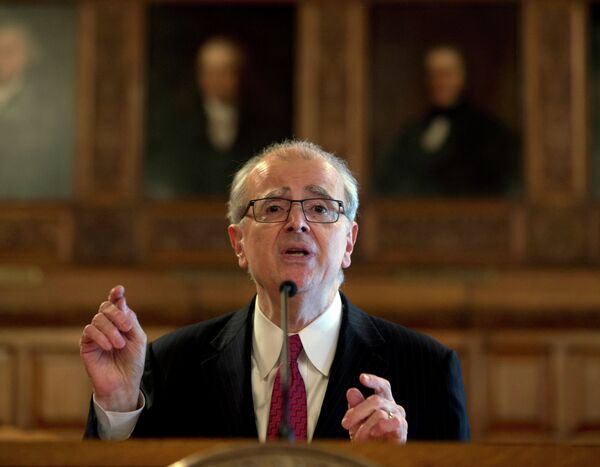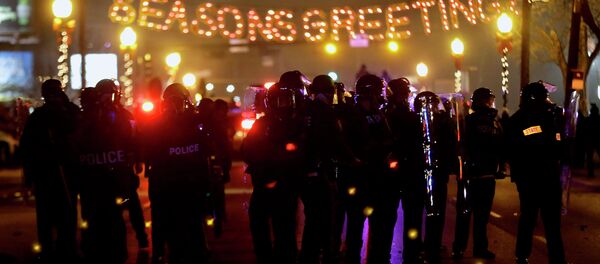Chief Judge Jonathan Lippman proposed reforming the way grand juries handle cases involving police violence during his annual State of the Judiciary speech, adding last year’s events caused “a crisis of confidence” in the justice system.
"Such perceptions, while broad brush, clearly can undermine public trust and confidence in the justice system," Lippman said. "To me, it is obvious that we need significant change in grand jury practices and protocols in the world we live today."
Referring to the two grand juries that refused to indict white police officers who were involved in the death of two black men, Eric Garner in New York and Michael Brown in Ferguson, the senior judge described the current grand jury system as “an ancient institution dating back to medieval times”, and said it needs to be modernized to “meet the problems that we face in society today”.
Lippman added that the current system has shown that prosecutors are unable to objectively present evidence to grand juries.
“There is a perception, in light of a number of recent cases in this country, including one in New York … that the prosecutor does not have the ability, because they work so closely with the police, to objectively present evidence to a grand jury when it comes to cases involving police-civilian encounters.”
The legislation will include two big changes to the system. First judges, not prosecutors, should oversee grand juries weighing police-related civilian assaults and homicides.

“The first part of the proposal is based on this perception of conflict of interest, and the idea that prosecutors are ‘damned if they do, damned if they don’t’ – if they indict, they have problems, if they don’t indict, they have problems,” Lippman said.
Second, the testimony heard by the grand jury should be released in cases of "high public interest," unless a specific injunction against it is requested.
“While the prosecution could seek an injunction, the whole record would be presumed to be made public, the testimony, questions, the whole process – everything but the deliberations [of the jury]. In this measure, we could bolster trust in the grand jury institution – and the justice system itself”.
The legislation will formally be presented to the New York state legislature on Feb. 24.
“I’m hopeful that this – or something along these lines – will make [its] way into law,” he said. “I think there is a consensus out there that we need change.”
But Patrick Lynch, President Patrolmen’s Benevolent Association, the largest police union, condemned Lippman’s proposal in a statement released on Wednesday.
“Judges already have a duty and responsibility to review all aspects of grand jury investigations,” the statement said. “The rule of law should apply evenly and fairly to all without exception. “There should not be a separate system of justice for police officers.”



